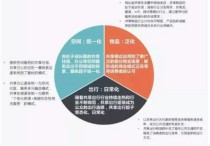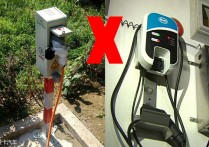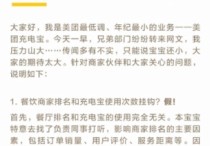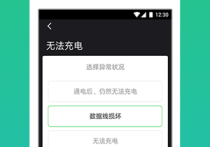中国式共享经济
The sharing economy is taking off in China, where you can rent anything from basketballs to apartments, umbrellas to songs.
共享经济正在中国蔚然成风,你可以租借任何东西共享式经济,从篮球到公寓,从雨伞到歌曲。
But it has taken a mercantile twist in the officially Communist country, with venture capital rather than citizens taking the spoils.
但在这个由共产党领导的国家,这种经济正呈现出商业色彩,受益的是风险资本,而不是公民。
While the biggest proponents of the global shared economy, such as Airbnb and Uber, enable people to earn extra cash by renting out their apartments, cars or time, the income from virtually all China’s many rented goods accrues to the owners of capital.
全球共享经济的主要旗手(例如爱彼迎(Airbnb)和优步(Uber))让人们能够通过出租自己的公寓、汽车或时间获得更多收入,但中国几乎所有租赁商品所赚取的收入都集中到了资本所有者手中。

“In foreign countries it’s more like individuals’ sharing economy,” said Erik Zhang, business manager at 3W Coffee, a Shenzhen-based incubator. “But in China it’s more the companies.”
“在别的国家,共享经济更像是个人的,”总部位于深圳的创业孵化机构3W咖啡(3W Coffee)业务经理Erik Zhang表示,“但在中国,它更像是公司的。”
The big prize for these companies is not a slice of transaction revenues but data. Goods rented out many times provide troves of statistics on usage habits. Data can also be used for credit scoring systems: fail repeatedly to return an umbrella, and your credit score will go down.
这些公司的巨大收获并非来自交易收入的分成,而是数据。频繁租赁的商品提供了大量有关用户习惯的统计数据。数据还可以用于信用评分体系:多次未能归还雨伞,你的信用评分就会下降。

That has made sharing a much-replicated business model. Bicycles, phone chargers, umbrellas and even basketballs can all be rented by the hour. Even purveyors of music have got in on the act: telephone box-style karaoke booths outside malls and supermarkets in some of the biggest cities allow crooners to dart in for a swift lunchtime song or two, and even record it.
这让共享变成了一种被大量复制的商业模式。单车、充电宝、雨伞甚至篮球都能按小时租借。甚至连音乐供应商也加入了进来:在一些大城市的商场和超市,出现了类似电话亭那样的卡拉OK吧,唱歌爱好者可以在午饭时间冲进去唱一两首,甚至还能录音。
Jiedian, a spin-off from electronics accessory maker Anker, plans to place more than 1m of its AnkerBox phone-charging units in Chinese bars and cafés this year. Proprietors simply pay the electricity; users pay when they charge for more than 30 or 60 minutes, depending on location.
电子设备配件制造商Anker旗下的街电(Jiedian),计划今年在中国的酒吧和咖啡厅放置逾100万部AnkerBox充电宝。业主只需承担电费;用户充电30分钟或60分钟(取决于充电宝所在地点)以上付费。

The small charges attached to many services point to the ability to corral big data.
很多服务收取的低廉费用背后隐含的是收集大数据的能力。
“It’s not just the bikes; what is also valuable is the data,” said Sitao Xu, China economist and partner at Deloitte China, the consultancy. “That’s why venture capital and investors are willing to invest [in the multitude of bike-sharing apps that have sprung up in China in the last year].”
“这不仅仅是单车;同样宝贵的是数据,”咨询公司德勤中国(Deloitte China)首席经济学家、合伙人许思涛表示共享式经济,“风险资本和投资者之所以愿意投资(于去年在中国如雨后春笋般兴起的大量单车共享应用),原因就在这里。”

Multinational exemplars of the sharing economy that are operating in China have seen their models customised by users. Rather than rent out their own apartments while they are on holiday, many Chinese have morphed into small-time landlords, investing in a second apartment to rent out by the day — a tactic also popular in Japan.
共享经济的国际旗手在中国开展业务时,看到他们的业务模式被用户改变了。很多中国人不是在度假时把自己的房子出租出去,而是变身小房东,投资第二套住宅,然后按日出租——这种做法在日本也很普遍。

“The sharing economy is really based on the character of the region where you want to start your business,” said Mr Zhang. “Here it’s more for cultural reasons: in China people don’t like to share stuff with other people unless we don’t need it [any more].”
“共享经济实际上基于你开展业务所在地区的特点,”Eric Zhang表示,“在这里,更多的是出于文化原因:在中国,人们不喜欢把东西与他人分享,除非这样东西我们不(再)需要了。”
Even Didi Chuxing, the ride-hailing app that bested Uber in China and subsequently bought its China operations, has opened up opportunities for tangential businesses alongside drivers.
甚至连叫车应用滴滴出行(Didi Chuxing)也不仅为司机、还为相关公司带来了机会。滴滴出行在中国击败优步,后来收购了后者的在华业务。
Didi has a number of partnerships with car rental businesses that rent out cars to drivers, while an industry in renting out number plates — an expensive part of keeping cars on the road — has also sprung up. One such agency is renting plates out at Rmb10,000 ($1,500) a year and says a fifth of its business comes from Didi drivers.
滴滴与很多向司机出租汽车的汽车租赁公司达成了合作,同时号牌租赁(这是维持汽车运营的一项昂贵费用)行业也迅速出现。一家号牌租赁代理机构的号牌租金为一年1万元人民币(合1500美元),该机构表示五分之一的业务来自滴滴司机。
“For something like bike-sharing in China, it’s not really sharing,” said William Chau, who leads Deloitte’s telecoms, media and technology practice in China. “It’s owned by a tech company. It’s a leasing model?.?.?.?and data capturing is one of their key agendas.”
“在中国,像共享单车这样的业务并非真正的共享,”德勤中国科技、传媒和电信行业领导合伙人周锦昌(William Chau)表示,“它由一家科技公司所有。这是一种租赁模式……获取数据是它们的主要目的之一。”





